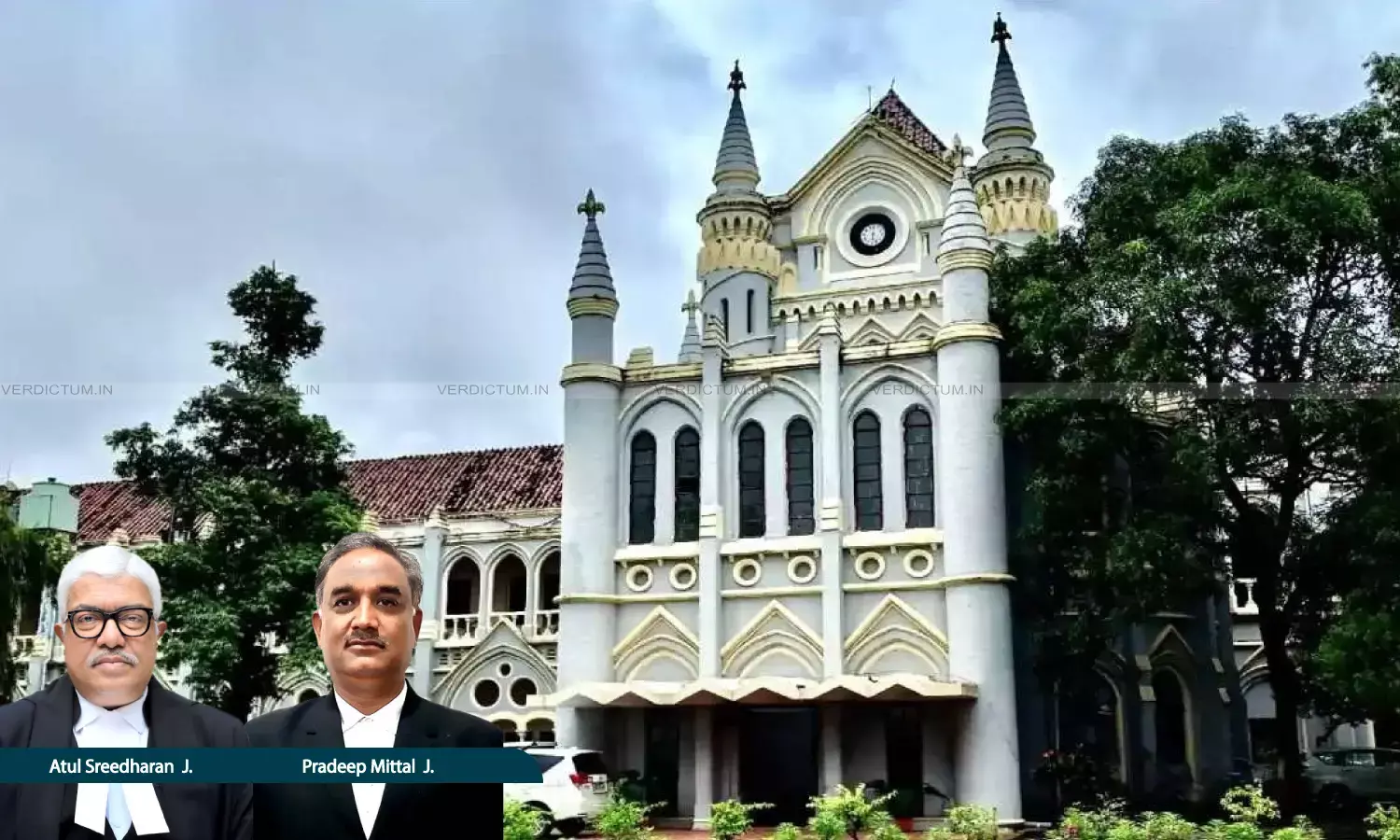'Uncalled For': Madhya Pradesh High Court Takes Suo Motu Cognizance Of Its Single Bench Order Directing Inquiry Against Sessions Judge
The case relates to the alleged embezzlement of over ₹25 lakh.

Justice Atul Sreedharan and Justice Pradeep Mittal, Madhya Pradesh High Court (Jabalpur)
The Madhya Pradesh High Court has taken suo motu cognizance of an order passed by one of its own single-judge benches, which had directed an inquiry against a judicial officer for allegedly discharging serious criminal charges to benefit an accused in a land acquisition embezzlement case.
The case relates to the alleged embezzlement of over ₹25 lakh, in which forged orders of the District Collector were allegedly used to transfer funds intended for four land acquisition claimants to eight persons, including Roop Singh Parihar (a computer operator) and his wife.
A Division Bench of Justice Atul Sreedharan and Justice Pradeep Mittal criticized the single-judge order as being "based on speculation" and "uncalled for", stating, "The aforesaid direction is chilling. Firstly, it concludes that the order of discharge passed by the Ld. 1st ADSJ was to “give undue advantage” to the accused and secondly, it speculates ulterior motive on the part of the Ld. 1st ADSJ by observing “..it appears that 1st Additional Sessions Judge has ulterior motives”. This unfortunately was absolutely uncalled for and a violation of the Hon'ble Supreme Court’s consistent direction to the High Court to desist from such observations in judicial orders."
Background
The controversy stems from a September 12 order by Justice Rajesh Kumar Gupta, a recently appointed judge of the Madhya Pradesh High Court. While denying bail to Roop Singh Parihar, an accused in a large-scale land acquisition fraud, Justice Gupta not only commented on the merits of the case but went a step further and ordered an inquiry against the trial judge, Ist Additional Sessions Judge Vivek Sharma (Shivpuri).
Justice Gupta expressed the opinion that Judge Sharma appeared to have discharged most of the serious offences including charges under Sections 409, 420, 467, 468, 471, 120-B and 107 of IPC—to deliberately ensure that the accused became eligible for bail. The bail order alleged that Judge Sharma acted with "ulterior motive" by retaining only a less serious charge under Section 406 IPC.
Finding
The Division Bench observed that no revision petition against the trial court's discharge order was pending before Justice Gupta. Therefore, his critical remarks on the trial court’s decision were entirely beyond the scope of his bail jurisdiction.
The Bench stressed that such remarks made without notice to the judicial officer concerned violated due process and risked undermining the independence of the district judiciary.
It further stated, "The High Court becomes the sentinel protecting the District Judiciary from its (High Court’s) excesses and ensure that the independence and fearlessness of the District Judiciary is not emasculated (as in weaken or reduced in power and authority)."
The Division Bench clarified that while the High Court certainly has supervisory jurisdiction under Articles 227 and 235 of the Constitution, it must exercise that authority with caution and fairness, especially when it comes to the integrity of subordinate judiciary.
The Bench said the High Court’s role includes both correcting errors and protecting judicial officers from overreach by higher courts, including itself. It emphasized that when one part of the judiciary makes a serious adverse remark against another judicial officer without jurisdiction or procedural fairness, corrective action becomes necessary.
Acknowledging that Justice Gupta’s order could not be directly appealed before the Division Bench, the Court said that while writ appeals are sometimes entertained suo motu in similar cases, it would not adopt that route.
Instead, the Bench directed the Registrar General of the High Court to file a Special Leave Petition (SLP) before the Supreme Court against the single-judge order within ten days.
"This Court is wary to follow suit. Though, extraordinary jurisdiction under article 226 and inherent jurisdiction under section 482 Cr.P.C inheres in the High Court, irrespective of the roster, the exercise of either has to be through a conscious process where the High Court, unambiguously or through inescapable inference, discloses its intention to exercise such authority. However, when the High Court exceeds its discretion and jurisdiction in a given case, the same has to be deemed an error on the part of the High Court rather than presuming the same to be an order in the exercise of its extraordinary or inherent jurisdiction," the Court said.
The Court further noted that since this matter was not adversarial in nature i.e., the High Court was not a direct party or aggrieved there was no need to issue notice or seek a response from any party before proceeding. It said, "As this order is not passed in an adversarial capacity, and there is no adversity suffered by the High Court on account of this order, it obviates the necessity to issue notice and call for a reply from the High Court."
The matter is now listed for further hearing on October 6.
Cause Title: Court On Its Own Motion v. High Court Of Madhya Pradesh Through Registrar General


